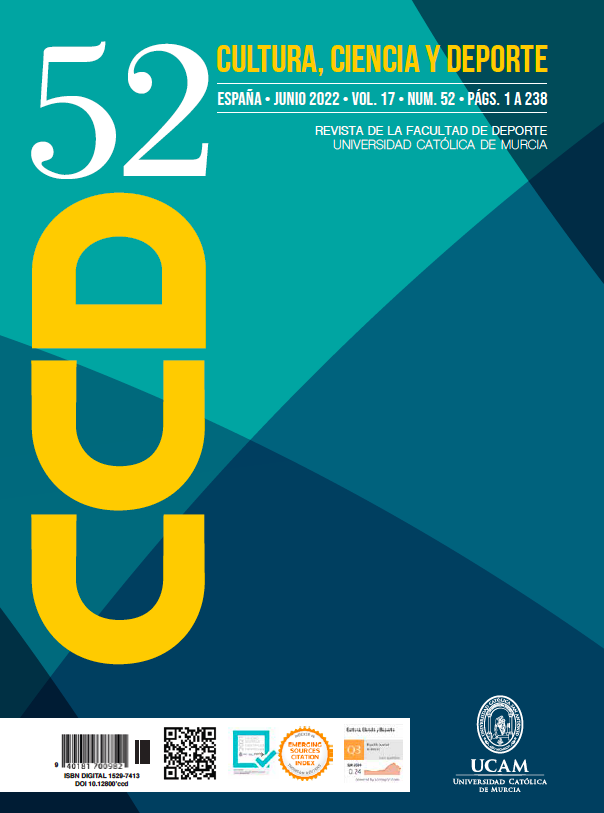Effect of a gamified program on physical fitness and motor coordination
DOI:
https://doi.org/10.12800/ccd.v17i52.1786Abstract
The objective of this study was to analyze the effect on motor coordination, lower body strength and agility of a gamified Physical Education programme developed to improve the ability to jump in schoolchildren between 8 and 11 years old. A pre-post quasi-experimental design was used with two groups (experimental group: 172 boys and 157 girls; Control group: 99 boys and 69 girls). Motor coordination was measured through the 3JS test, the ability to jump horizontally with feet together, and the ability to jump vertically by jumping with counter movement. Agility was assessed through the 4x10 test. A mixed design of factorial variance analysis was applied in which the intervention and sex were inter-subject fixed effect factors, while the time of measurement of the variable was a repeated measures factor within-subjects with two levels. The present study showed that a gamified teaching approach in Physical Education improved the performance of lower body strength, agility, and motor coordination. However, no differences were found based on sex and age.
Downloads
Published
How to Cite
Issue
Section
License
Copyright (c) 2022 Creative Commons Attribution License

This work is licensed under a Creative Commons Attribution-NonCommercial-ShareAlike 4.0 International License.
The authors who publish in this journal agree with the following terms:
- The authors retain the copyright and guarantee the journal the right to be the first publication of the work as well as licensed under a Creative Commons Attribution License that allows others to share the work with recognition of the authorship of the work and the initial publication in this journal.













